"I never cease to be fascinated by the variety of experience lived by our students and alumni. Our BBA success stories celebrate that diversity. Clustered around the key themes of PROFESSIONAL–EXPERIENCE–CAREER–ACHIEVEMENT–RESILIENCE–NETWORK, our stories traverse a rich variety of experience. It is my great professional and personal fulfillment to be working together with our young people on the undergraduate programmes, helping place opportunities before them - and witnessing their multiple achievements. Truly, we give our best for the best in you."
Dr Raymond Wong
Associate Dean
Undergraduate Programmes
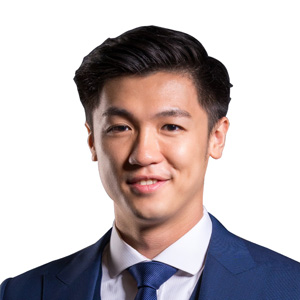 |
We had a simple idea of empowering the world by digitalising cashAdam LauChief Marketing Officer, Heycoins |
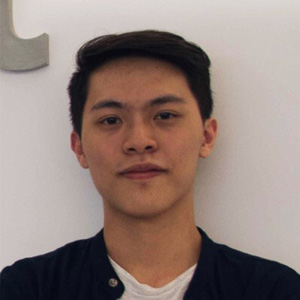 |
I was challenged to step out of my comfort zone on a daily basisThomas TseIntern at Microsoft and HP |
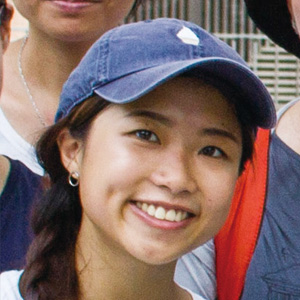 |
I started ElderTreks to support active ageing and collaboration across the generationsMichelle KwokCo-founder, ElderTreks |
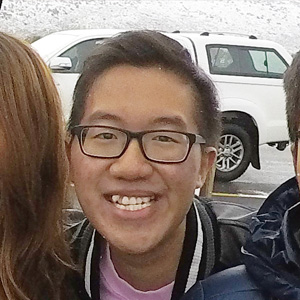 |
The smile on her face showed me that wealth is not equivalent to happinessVictor TseParticipant of a community service project in Cape Town |
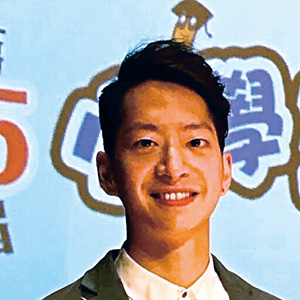 |
I was very proud to get Born this way published. This is about embracing ourselves, proudly, as we areKevin TongAuthor |
 |
Xiaomi was an opportunity to realise what we had been looking for at CityU in those competitionsKenelm ChengSenior Global Operations Manager, Xiaomi |
What caught my imagination in Write your future is the sheer vibrancy of the stories. As Kevin Tong puts it in his piece: “Wave goodbye to a standardised life.” The meaning of success is up for grabs. Many of you are choosing to go beyond the zone of conventional expectation. We hope to publish many more of your inspiring stories. Let’s hear from you please. If you have a story to share, please contact the editorial team: cbmagazine@cityu.edu.hk
Eric Collins
Editor-in-Chief
By Adam Lau
Adam Lau is Chief Marketing Officer at Heycoins, a kiosk network and IT solution provider that collects coins from the public and converts them into digital currency. Here he tells the story of how he started up Heycoins, and his aspiration for its positive impact on society.
In the very beginning, we had a simple idea of helping our community resolve the inconvenience of using physical coins. Cyberport offered us financial support which we used to make our first prototype. After that we were selected as a Cyberport incubatee and benefited from many networking sessions and exposure opportunities. This has been phenomenal for us.
Heycoins had such an everyday beginning. I was sharing a room with some exchange students at CityU, and they left me a large amount of spare coins. Literally the penny dropped! I realised that coins were sitting idle in people’s homes all over the city.
The Hong Kong Monetary Authority was already running a truck around, collecting coins from the public which could be converted to top up Octopus or get cash back. But they only had two trucks. I thought there was a lot of potential to get into the housing estates and shopping malls and collect more coins.
I had seen coin kiosks in US supermarkets where you could get cashback or vouchers. We decided to go one step further, and digitalise the cash into Heycoins which allow people to buy goods in our mall. You can also fill your e-wallet. We appeal to people in all walks of life, and especially to those for whom thrift is a virtue and who hate to see money lying idle.
Heycoins is riding the crest of the digital wave. One year ago, if you asked people if they had an e-wallet, most would have said no. Nowadays having at least one e-wallet in your mobile, PayMe, Alipay or WeChat Pay is common. Some people still think there are security issues in using these systems, but confidence is rising rapidly.
We also see Heycoins as a social impact project. Coins are a very down-to-earth way to introduce people to the e-wallet. We are already reaching sectors of the population who otherwise would never have dreamt of using one. We have promotion offers so that when people convert HK$200 and start up a new e-wallet, we give them HK$20 incentive. Also, we have a donation function on our kiosk. We now have 30 kiosks. Last year we collected HK$10 million worth of coins.
Hong Kong is a fantastic showcase for our business, because some countries need a catalyst to start digitalising their money. Next year, we will have kiosks in Singapore, Thailand, and Macau. In those countries we are selling ourselves as an IT solution provider. We will build a server, and a system and help them build various e-wallets, and we will provide our own secure app.
We aim to promote Heycoins as a digital currency, I will not say cryptocurrency. We would like you to be able to use Heycoins across the region, whether that be in Singapore, Bangkok, or Shanghai.
In my first year at CityU I joined a lot of societies, and was president of the Music Society. Then I took a gap year and turned myself into a part-time student for two years whilst I started my first business. I learned the tech stuff from internships, especially friends from China who had a very entrepreneurial spirit, and who invited me to join businesses before I started Heycoins. So, I got a lot of other-than-learning experience from CityU.
CityU provides a lot of room for students to discover themselves, creating the space for students to develop themselves by themselves.
| Social Mission | ||
|---|---|---|
|
Heycoins was named merit winner of the Hong Kong Industrial Award in 2017. Since its launch in May 2017, it has served over 55,000 users and successfully processed over HK$17 million in coin value. Heycoins aims to increase charitable donations from the public, and improve charities’ efficiency in fundraising, and commits to reinvest more than 65% of profits into businesses that do social good. Heycoins encourages the public to deposit their coins into charitable donations using kiosks. In addition, the company provides cash management support services to charities/ NGOs for their fundraising campaigns, aims at greatly improved efficiency and lower operational costs. In these ways, Heycoins aims to boost the incentive to make charitable donations. |
||
By Thomas Tse
Thomas Tse is a final year marketing student. Over the past two summers he worked as a product marketing intern at Microsoft and a marketing communications intern at HP.
Microsoft was my first internship and it was overwhelming. I was challenged to step out of my comfort zone on a daily basis. HP was an opportunity to consolidate the hard skills I had acquired at Microsoft, and to be more agile and multi-faceted by gaining different skills in this fastpaced industry.
l like the tech industry’s emphasis on culture-building. People are open to a multitude of conversations and collaborations – extremely attractive to a newbie in the workplace. From technical training to the little daily conversations I had with the managers and colleagues, I was totally immersed in an inclusive culture from day one. People in tech are always striving to achieve more, individually – but also in terms of the overall impact they exert on society.
I led the onsite marketing for UProgram and Microsoft Surface's “Back to School Marketing Campaign” in summer 2017. From brainstorming to execution, it was never easy. At HP, I had a chance to co-lead the event management of the esports experience booth at HK Computer Expo 2018. This involved management, brainstorming and logistics management, as well as being the project manager for the social campaign for OMEN, HP's gaming product brand. I had to manage the marketing assets and to align interests with different internal stakeholders.
These opportunities have helped me truly know my identity in the workplace, the kind of career direction I would like to take, and more importantly, what kind of man I want to become as I grow up.
Working in the tech industry has given me a steep learning curve in soft skills, a better transition to the workplace and a change in mindset, becoming more thoughtful and detail-oriented. I am extremely thankful to have met all the amazing people from the two companies over the course of this journey.
By Michelle Kwok
Michelle Kwok co-founded ElderTreks in 2016 to support active ageing and collaboration across the generations. The social enterprise promotes local tours co-led by elders and youth. ElderTreks also preserves oral history, and aspires to connect people across society through the power of stories.
At the age of eighty-three, Ka Chun has led the Shek Kip Mei tour at least a dozen times, yet tears still well up in her eyes every single time.
Coming from humble beginnings, Ka Chun and her family were happily living in a wooden shanty built by her dad before it was taken away by a major fire on Christmas Day, 1953. During the Shek Kip Mei tour, Ka Chun walks us through her life story in the neighbourhood – from being a refugee after the fire, witnessing the development of Hong Kong public housing, to the breakout of the Double Tenth riot in 1956. The journey enables participants to reimagine history and to catch a glimpse of the indomitable “Spirit of Lion Rock”. It also encourages tour participants to look beyond stereotypical perceptions of elders. The storytelling and the curiosity of younger generations makes for a ready dialogue.
I started ElderTreks two years ago in the hope of promoting inter-generational understanding and advocating active ageing. The elderly population is one of Hong Kong’s biggest challenges. I often see groups of elders sitting in parks with a blank look on their face, doing nothing and segregated from the rest of the society. As someone raised by a grandparent, I always try to sit down and initiate conversations with them. Their faces light up, and they will go on to share their stories full of love, courage, wisdom (and humour!).
The younger generations in Hong Kong are constantly in search of their own identity along with our city’s, particularly since the 2014 Umbrella Movement. ElderTreks aims to connect diverse people through the power of stories. We train elders to lead tours by telling their own stories in their own neighbourhoods. At the same time, this is a unique opportunity for bonding across the generations with our younger facilitators assisting the elders with research, tour operations, etc.
It has been wonderful seeing the elder tour guides transform and grow: from lacking confidence to proactively giving ideas on how we can improve our tours. But more importantly, I’m honoured to be able to call them my friends. They have taught me so much through action – their worldliness, diligence, generosity and tenacity are timeless treasures along with the memories we’ve created together.
By Victor Tse
Victor Tse is a final year accountancy student. Last summer he was a volunteer at the Cape Flats Sports Academy, a startup social enterprise which helps teenagers and children living in townships in Cape Town.
In this affluent, cosmopolitan city, Hongkongers are enjoying a high standard of living. The younger generation is amongst the most fortunate in the world. It is not unusual to see youngsters scrolling the screens of their extravagant gadgets during a silent family dinner in the restaurant. Of course, we are entitled to such luxuries. But, a majority of Hong Kong children still claim that they are living an unhappy life. Why is this happening? How come they are still not happy when they have the latest iPhone?
This summer I was very lucky to be a participant of the SHAWCO programme, working alongside entrepreneurs in social enterprises in Cape Town, South Africa. I worked at the Cape Flats Sports Academy, a startup social enterprise which helps teenagers and children living in townships – a.k.a. the poor areas in the community – develop their talents in sports. Since there are a lot of gangsters in their community, the organisation also plays an active role in providing teenagers with a shelter from the storm.
I met a little girl there. She was playing football when I visited the upcoming “Open Street” event venue. She was by no means living a wealthy life like most Hong Kong kids. Wearing her very old and ripped clothing, she was never an eye-catching kid on the field. But the 8-year-old girl, who did not even wear shoes, ran like a flash and played like Lionel Messi on the football pitch. Her performance was absolutely fascinating! I was totally astonished at her talent so I asked for an interview with her during the break.
No matter how hard I tried, she just gave me the cold shoulder. I wondered if I had offended her in some unimaginable way, since it was my first time to visit South Africa. I turned to the coach and asked for the reason, and his response was utterly unexpected. The little girl was born deaf and mute because of her mother’s excessive drug intake during pregnancy. Later an interview was arranged, and I got to know more about her story.
Living in an area full of poverty and crime, her brother was brutally shot by the township gangsters. Her mother sent her to the academy to get trained and stay safe. The coach also told me that the little girl was one of his best students, and she was about to get a full scholarship to be trained abroad. She did not have money, but she did have a lot of best buddies. She did not have a wealthy family, but she did have a lovely family. Poverty and disabilities had never been obstacles standing in her way. That smile on her face when she was playing football showed me that wealth is not equivalent to happiness. Her laughter when she scored a goal told me that there are things in the world that money cannot buy.
The comfort from the material, excitement from consumption, and relaxation from a high standard of living allows us Hong Kong people, to immerse in delight and contentment. However, this is just something temporary. Recall, did you ever feel happy because of owning an expensive product? Was money the only thing that gave you the taste of pleasure? The answer is a very simple, “no”.
That handicapped girl cherishes her life and what she possesses. Without any iPhone and iPad, she understands why she needs to treasure everything and how arduous her parents’ work is. She knows that her mother loves her more than anything. Her story teaches me that wealth does not determine whether children are happy or not, but family life does.
Happiness does not lie in material comfort, but spiritual welfare. What we need is love, care, inspiration, and a complete and satisfying family life. Why don’t we just put away our iPad and iPhone for an hour and spend it with our family?
What we need is not the newest iPhone, but just simply “iCare” and “iLoveYou”.
By Kevin Tong
Kevin Tong graduated from the Department of Marketing in 2014 and set off to travel the world. After landing in the US, he embarked on a journey of selfdiscovery, said goodbye to his past nightmares, and started writing. His first book, “A Truant in the US” was voted a Top-10 Book for Secondary Students by the Hong Kong Professional Teachers’ Union in 2017-2018.
I have visited unimagined cities, met extraordinary people, let go of the stubbornness in my mind, celebrated friendship with tears and smiles, attended a funeral, welcomed a new-born baby… and finally skydived from the deep blue sky and said goodbye to my nightmares from the past.
Whilst I was at CityU I was lucky enough to go on an inspiring exchange trip to the US, and after graduating I didn’t want to settle in Hong Kong. So I returned to the US and found an internship working for the rotary club in San Jose. The work was in event management, helping to organise large-scale events like Independence Day BBQ. The atmosphere was quite relaxed. I remember one afternoon when the World Cup was on, around 2pm my boss just told me to go home and watch the football. Quite interesting – I think in Hong Kong it would be an unusual order! In the US it seemed like people really cared about your feelings, not just duty and work.
I started looking around, first entering a T-shirt design competition, which I won and as a result started selling my T-shirts. Then I entered a marketing competition, eventually won that too, and ended up helping a local aviation company, Flight Logistics, to rebrand. They are still using my design as their official logo. It seemed like my major in Marketing at CityU was paying off!
So many people inspired me in the US. One of the most profound events was the sudden passing of one of my flat mates. I helped organise the funeral, and this was an emotional but also rewarding event for me. I was amazed by how openly my friends exchanged their feelings. It was like a cleansing. His passing inspired me a lot. I began to cherish life. After all, you never know what is going to happen next. That’s why when I came back to Hong Kong, I didn’t want live a standardised life. I started working towards my dream.
I hadn’t really enjoyed my high school. It was a very traditional boys’ school and I wasn’t very good at sport and couldn’t really blend in with my friends. I was quite lonely. In the end I was ignored, isolated and bullied. How did I handle it? I didn’t really do anything. I just felt sad, wondering why my friends didn’t like me. This is really what inspired me to write my second book, Born this way. I wanted to get across: “Maybe at this moment people don’t understand you, but it’s OK. Just be yourself. You will find your own worth, your own place to shine.” Many of the students I speak to can relate to this, sometimes with tears in their eyes. I want to let them know that someone understands how they feel, and that they are not alone. That’s the best part of sharing.
I was very proud to get Born this way published. Many people are afraid of being different. Many structures in the world seek to standardise us. So, this is about embracing ourselves, proudly as we are.
My latest book Cheers for Encounters is about all the encounters in life, including parents, friends, love. We all have sad memories of some relationships, but they are all worth celebrating. All encounters have value, so this is about how we can embrace and cherish relationships in our life.
Every time I go to a school to share my experience, it’s rewarding to see how the young students are inspired by the words of my story. I would like to keep doing that, to share my energy, so they can create their own story, live their life bravely, and pursue their own dreams.
When people do not understand, they tend to question and judge. Sometimes it is difficult to face all the judgments and criticisms in society. But why do we have to care so much about what others think? When it comes to your own life, just follow your passion and your heart, and most importantly, do not let others affect how you value yourself.
By Kenelm Cheng
Kenelm Cheng is Senior Global Operations Manager at Xiaomi, with special responsibility for Hong Kong. Here he tells us about his exciting 5-year journey at the Chinese tech giant.
I studied a cross discipline BBA in Marketing Information Management at CityU and graduated in 2012. It was the first collaboration of the Marketing and Information Systems departments to see how digital information could be used in marketing. At that time, as now, digital marketing was changing the face of the world as we know it. Everybody was talking about Facebook, Google and eBay, and how important they were for marketing, and asking how we could learn the practice of digital internet marketing. We were all talking about entrepreneurship and how to set up a company. We took part in online competitions aimed at practising global e-commerce business. Every student wanted to be a boss.
We also recognised that Alibaba was growing very rapidly, and we sourced many products from mainland China through Taobao. We would take the train to Guangzhou or Shanghai to look for potential manufacturers. The College really encouraged us to be entrepreneurs. We joined competitions, not so much focusing on winning but enjoying the process. These competitions opened our eyes. We could see that mainland China was a very big opportunity.
After graduating, I joined a startup with a few friends doing financial app development, working in a role bridging IT and business. The market was booming. Every company wanted to set up an app to bring their services and products to consumers and leverage their advantage on the smartphone platform, which was relatively new at that stage. At the end of 2013, I came across Xiaomi for the first time when Redmi launched in Hong Kong. I had two friends working for Xiaomi in Beijing and they approached me and said they were looking for talents to develop the global market. Xiaomi was an opportunity to realise what we had been looking for at CityU in those competitions.
Back in 2014, Xiaomi felt like a startup. The company didn’t have any presence in Hong Kong. Of course, I had heard about Xiaomi because we were all working on Android, but in our startup, app development had focused on iPhone, Samsung, Pixel, and LG. When I came across Redmi, I was very surprised to find a product with such high cost-performance. No one could believe that high-spec smartphones could retail at under HK$1,000.
I was put in charge of the Xiaomi e-commerce store for Hong Kong. We only had two people in the Hong Kong e-commerce team! If you wanted to buy Xiaomi, you had to go through the online store, and wait about a week for the products to arrive from China. There was no bricks and mortar store in Hong Kong. After Redmi launched sales boomed. We ran flash sales. I had no idea that a company could sell 10,000 mobile phones in 30 seconds!
As the Operations Manager for Hong Kong, I started to look for business partners. We needed to look after logistics, customer sales, and after sales. Our cooperation with CSL led us to opening up a shop in Kowloon Bay. But we didn’t open our retail store in Mong Kok until the next year. And then it was on the 20th floor of the commercial building. I remember the lift lights were always on the 20th floor, which I thought was a good sign! Still in the end we moved to a ground floor outlet in Mong Kok, and opened another store in Causeway Bay.
Lei Jun, our CEO, gave us the strategic direction to branch out from the mobile phone and be more comprehensive. Xiaomi invested in many startups in diverse areas, and developed R&D in highquality products. With the smartphone at its core, an ecosystem of electronic white goods such as air purifiers, air conditioners, fridges and cookers was developed. Through the Mi Home app all these products can be controlled remotely by voice control. Our ecosystem companies are typically startups that Xiaomi will invest in, although we also partner with established brands such as IKEA.
Sometimes I get involved in the launch of new products in the Hong Kong market. After our big success in Beijing with air purifiers, we needed to do the market research to see if there was a niche in Hong Kong. That was also a headache for me, because I had to see what modifications needed to be made for the local market. We discovered because of the humidity here, there is more emphasis on anti-bacterial functions. Overall, we are now seeking to reproduce the success that we have had with the Xiaomi ecosystem in China in other countries.
Even though Xiaomi is a big company now, it still feels like a startup. We still have a lot of passion looking for new products and services that can serve society. We have been a very fast-growing company and have invested in many companies to build our open global ecosystem. World markets are changing all the time, so it’s almost like you have to be in perpetual startup mode to stay alert to new opportunities.
Xiaomi is famous for its flat hierarchy, and therefore for being quite creative and responsive to breaking customer needs and market trends. That doesn’t mean that it is a relaxing place to work! Last year was our IPO debut year in Hong Kong and we had a slogan internally which translates as: “Sleeping is a waste of time.” But I do have some hobbies. I have recently taken up drawing during plane journeys using a tablet. Ironically, I’ve found it enables me to concentrate more on work.
CityU was really helpful to me. The atmosphere in the IS and MKT departments was very conducive to startups. They instilled in us the idea that you have to keep changing throughout your life. They encouraged us to get out of our comfort zone and seek something new. If you look at things from a startup perspective, you will feel that you can do a lot. You ask: “How can you survive in this market?” “How can you serve the greater good?” By the way, we are still looking for graduates. If you have referrals, please put them in touch with me.
Overall, when you are choosing a university, I think you should choose a place which allows you to experiment, a place that gets you to use your talents, a place that can direct you to where you want to go. And for me that place was CityU.